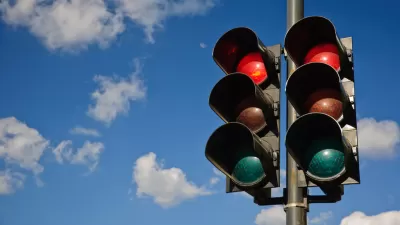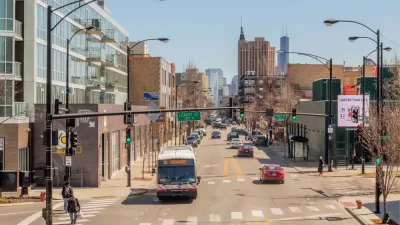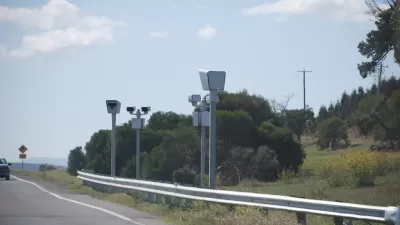Advocates of automated enforcement argue it saves lives, but despite a dramatic rise in speeding tickets, pedestrian fatalities grew in 2021.

Update: The WBEZ article referenced here was corrected by the editors due to errors in reporting and language that stated that the automated enforcement program did not improve safety. Please see their corrections here.
“Last March, Chicago deployed its robo camera system to ticket drivers who sped 6 miles or more above the limit, lowering the threshold from the 10 mph trigger set by former Mayor Rahm Emanuel nearly a decade ago.” A WBEZ article by Michael Gerstein examines the results of the program. “After the threshold went down from 10 to 6 mph, a WBEZ analysis found the number of tickets issued by the city increased dramatically. During the new program’s first full year, the city issued more than 2.34 million speed camera tickets, a roughly 400% increase from the most comparable time period — March 2018 to March 2019, before the pandemic hit, when driving volume had not yet plummeted.” The program brought in close to $106 million since March 2021.
However, “In the year during which the change took effect — 2021 — the number of traffic fatalities actually increased to 173 (compared to 151 deaths in 2020 and 118 in 2019), according to figures cited by the Lightfoot administration.” According to the article, “The average speed of the fastest drivers — those who were ticketed for driving 11-or-more miles per hour over the limit – did not change dramatically.”
While advocates say cameras are a “race-neutral” way to enforce traffic laws, save lives, and reduce the incidence of police encounters, the debate rages on in cities around the country. Some critics of the program call it a cash grab, arguing that it can be “financially crippling” to low-income residents whose neighborhoods, more likely to be located around freeways, tend to have the highest number of cameras. Addressing the question of whether speed cameras disproportionately impact low-income drivers, city comptroller Reshma said in a statement that the city is implementing programs to alleviate financial hardship, such as debt relief for low-income residents.
FULL STORY: Chicago’s speed cameras yield more tickets and fines, but also complaints and controversy

Alabama: Trump Terminates Settlements for Black Communities Harmed By Raw Sewage
Trump deemed the landmark civil rights agreement “illegal DEI and environmental justice policy.”

Study: Maui’s Plan to Convert Vacation Rentals to Long-Term Housing Could Cause Nearly $1 Billion Economic Loss
The plan would reduce visitor accommodation by 25% resulting in 1,900 jobs lost.

Planetizen Federal Action Tracker
A weekly monitor of how Trump’s orders and actions are impacting planners and planning in America.

Wind Energy on the Rise Despite Federal Policy Reversal
The Trump administration is revoking federal support for renewable energy, but demand for new projects continues unabated.

Passengers Flock to Caltrain After Electrification
The new electric trains are running faster and more reliably, leading to strong ridership growth on the Bay Area rail system.

Texas Churches Rally Behind ‘Yes in God’s Back Yard’ Legislation
Religious leaders want the state to reduce zoning regulations to streamline leasing church-owned land to housing developers.
Urban Design for Planners 1: Software Tools
This six-course series explores essential urban design concepts using open source software and equips planners with the tools they need to participate fully in the urban design process.
Planning for Universal Design
Learn the tools for implementing Universal Design in planning regulations.
Caltrans
Smith Gee Studio
Institute for Housing and Urban Development Studies (IHS)
City of Grandview
Harvard GSD Executive Education
Toledo-Lucas County Plan Commissions
Salt Lake City
NYU Wagner Graduate School of Public Service





























